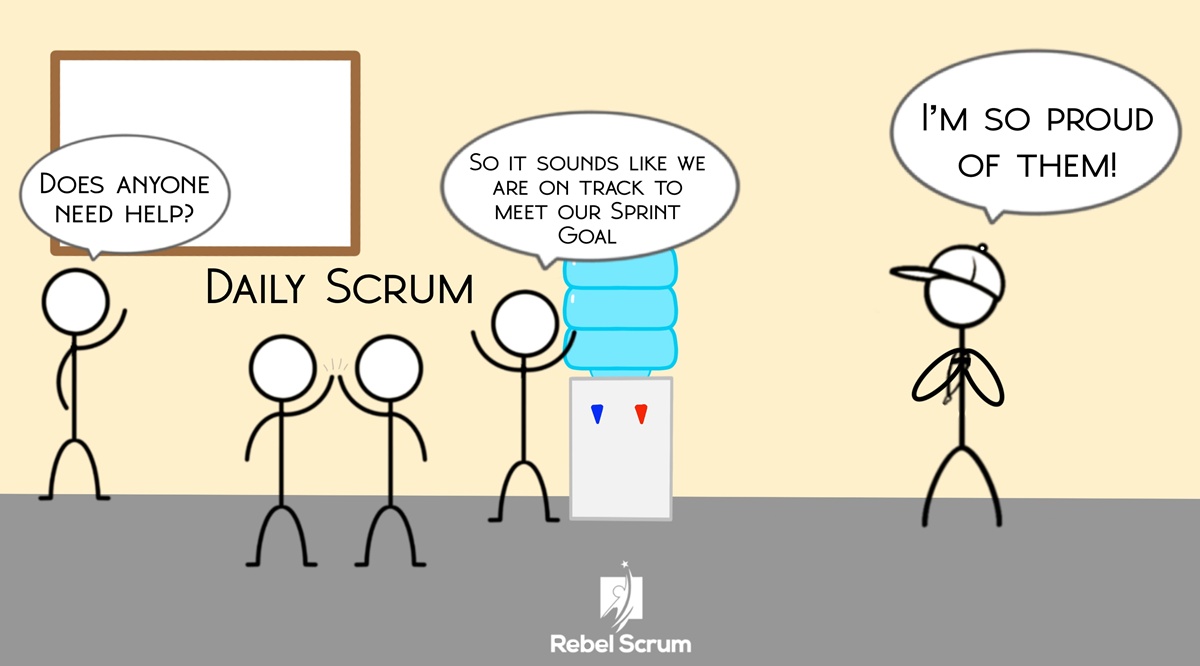
The Scrum Master’s purpose is to improve the adoption of Scrum. Sometimes that means facilitating Scrum events — when asked or when needed. So yes, that often puts me - as the Scrum Master - in the position of leading the Daily Scrum.
But here’s the thing: when I lead the Daily Scrum every single day, it starts to feel like it’s my event. And it’s not. It belongs to the Developers.
The Developers are the ones accountable for delivering a done, usable Increment every Sprint that meets the Sprint Goal. And the Daily Scrum is designed to help them do just that — increase the chances of delivering that Increment. It aligns exactly with what they’re responsible for. Which makes it their event.
So when I notice the Developers aren’t really “leaning in” during the Daily Scrum — maybe waiting for me to kick it off, or looking to me to drive it — sometimes I’ll take a step back. I might skip a Daily Scrum altogether to give them the space to take ownership. The first time I do this, I’ll let one of the Developers know in advance and ask them to lead. After that, I may skip it randomly and then check in afterward: “How did it go?”
If I find they’re handling it well (and not skipping like I did), I’ll keep stepping back and attending less often.
Because the goal isn’t for me to run the Daily Scrum forever. The goal is to help the team get the most out of it — to keep it short, focused, and purposeful. That might mean facilitating at first, but it doesn’t mean I should always be the one running it. In fact, it’s better if I’m not.
The first time I tried this approach, I asked the Developers how it went without me. “Fine,” they said — and I could tell it had been a little bumpy. But after a few rounds of me not showing up, they actually ran the Daily Scrum better without me!
